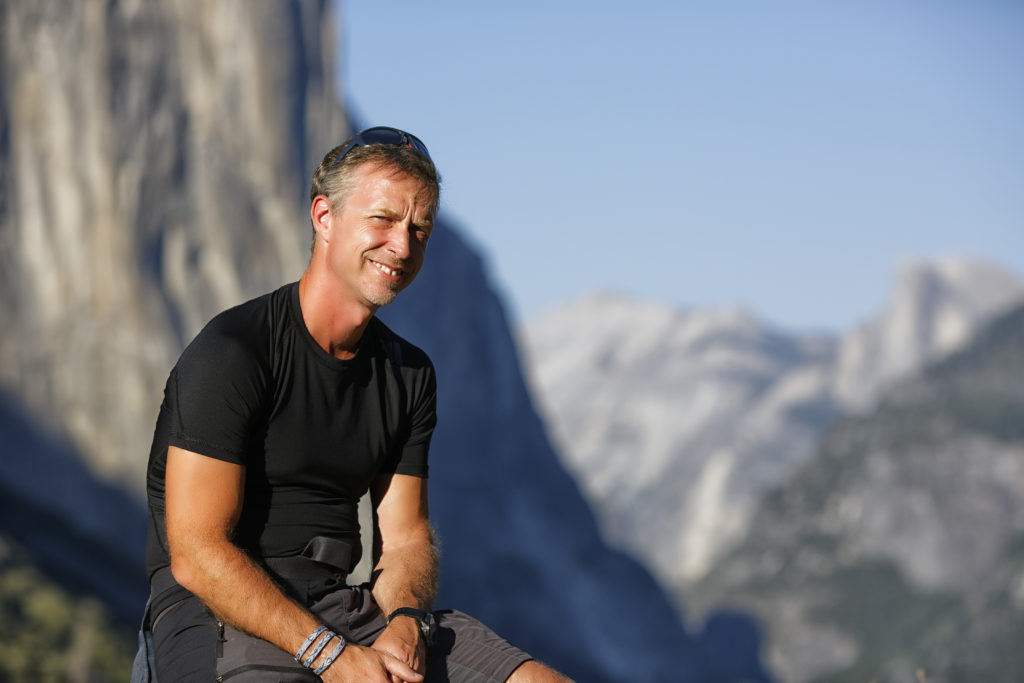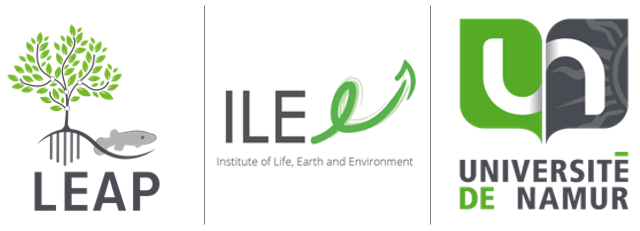Professor at the University of Namur
Chair of the Department of Biology
President of the Royal Belgian Zoological Society
Head of the Laboratory of Evolutionary and Adaptive Physiology
 Fascinated by the world of animals, I started a cursus in biology at the University of Liège in Belgium. Graduated in Zoological Sciences in 1996 after the defense of a MS thesis in the Laboratory of Oceanology, I then wanted to give a more applied orientation to my cursus and I got a Master Degree in Environmental Management at the Free University of Brussels where I achieved a thesis on the development of ecotourism in Antarctica. Afterwards, I decided to accept a teaching assistant position at the University of Namur where I could teach animal biology while developing an original research to implement a new proteomic approach in aquatic ecotoxicology, and more precisely on non-model organisms. PhD in 2005, I worked 2 years on a scientific collaboration project with the University of CanTho, Vietnam, before having a post-doc grant from the FNRS during which I implemented collaborations with American teams. A first experience brought me at the University of Louisiana Lafayette where I worked with Prof. P. Klerks, a specialist of ecotoxicology and adaptation of fish to pollutants. I then moved to the Golden State, California, more precisely at the University of California Davis with the help of a Fulbright grant. I worked there with the Prof. D. Kültz, one of the world specialist of environmental stress response and evolutionary proteomics in fish. Since 2010, I am Professor at the University of Namur where I founded the Laboratory of Evolutionary and Adaptive Physiology (LEAP). My main scientific questions investigate how aquatic organisms acclimate, adapt and evolve in an environment modified by human activities. My researches focus on mechanistic understanding of biological processes using physiological, behavioural, proteomic and epigenetic endpoints. I’m currently exploring the delayed and transgenerational effects of stressors applied during the development of fish species, such as the zebrafish and the mangrove rivulus. This latter species presents the unique advantage to self-feritilize, leading to isogenic lines, and is a good model to study the role of epigenetics in phenotypic plasticity. Lately, I’ve started a new project on the turquoise killifish, another peculiar species since it shows the shortest lifespan among all vertebrates. In 2020, I went back to Davis during a sabbatical leave and to work with Dr. Richard Connon. Unfortunately, the SARS-CoV-2 pandemic made me adapt my plans and develop my bioinformatic skills. I also recently started to study the mangrove rivulus in its natural habitat, in Florida and in Belize, with the help of my good collaborator Prof. Ryan Earley from the University of Alabama.
Fascinated by the world of animals, I started a cursus in biology at the University of Liège in Belgium. Graduated in Zoological Sciences in 1996 after the defense of a MS thesis in the Laboratory of Oceanology, I then wanted to give a more applied orientation to my cursus and I got a Master Degree in Environmental Management at the Free University of Brussels where I achieved a thesis on the development of ecotourism in Antarctica. Afterwards, I decided to accept a teaching assistant position at the University of Namur where I could teach animal biology while developing an original research to implement a new proteomic approach in aquatic ecotoxicology, and more precisely on non-model organisms. PhD in 2005, I worked 2 years on a scientific collaboration project with the University of CanTho, Vietnam, before having a post-doc grant from the FNRS during which I implemented collaborations with American teams. A first experience brought me at the University of Louisiana Lafayette where I worked with Prof. P. Klerks, a specialist of ecotoxicology and adaptation of fish to pollutants. I then moved to the Golden State, California, more precisely at the University of California Davis with the help of a Fulbright grant. I worked there with the Prof. D. Kültz, one of the world specialist of environmental stress response and evolutionary proteomics in fish. Since 2010, I am Professor at the University of Namur where I founded the Laboratory of Evolutionary and Adaptive Physiology (LEAP). My main scientific questions investigate how aquatic organisms acclimate, adapt and evolve in an environment modified by human activities. My researches focus on mechanistic understanding of biological processes using physiological, behavioural, proteomic and epigenetic endpoints. I’m currently exploring the delayed and transgenerational effects of stressors applied during the development of fish species, such as the zebrafish and the mangrove rivulus. This latter species presents the unique advantage to self-feritilize, leading to isogenic lines, and is a good model to study the role of epigenetics in phenotypic plasticity. Lately, I’ve started a new project on the turquoise killifish, another peculiar species since it shows the shortest lifespan among all vertebrates. In 2020, I went back to Davis during a sabbatical leave and to work with Dr. Richard Connon. Unfortunately, the SARS-CoV-2 pandemic made me adapt my plans and develop my bioinformatic skills. I also recently started to study the mangrove rivulus in its natural habitat, in Florida and in Belize, with the help of my good collaborator Prof. Ryan Earley from the University of Alabama.
Contacts : frederic.silvestre@unamur.be
Researchgate profile : http://www.researchgate.net/profile/Frederic_Silvestre/
Personal photography website : https://fsilvestrephoto.smugmug.com/
Personal blog: https://fsilvestreblog.netlify.app/
Twitter: @fsilvestrelab
Instagram: https://www.instagram.com/fsilvestrephoto/
Github: https://github.com/fredsilvestre
CV:
CV Silvestre
